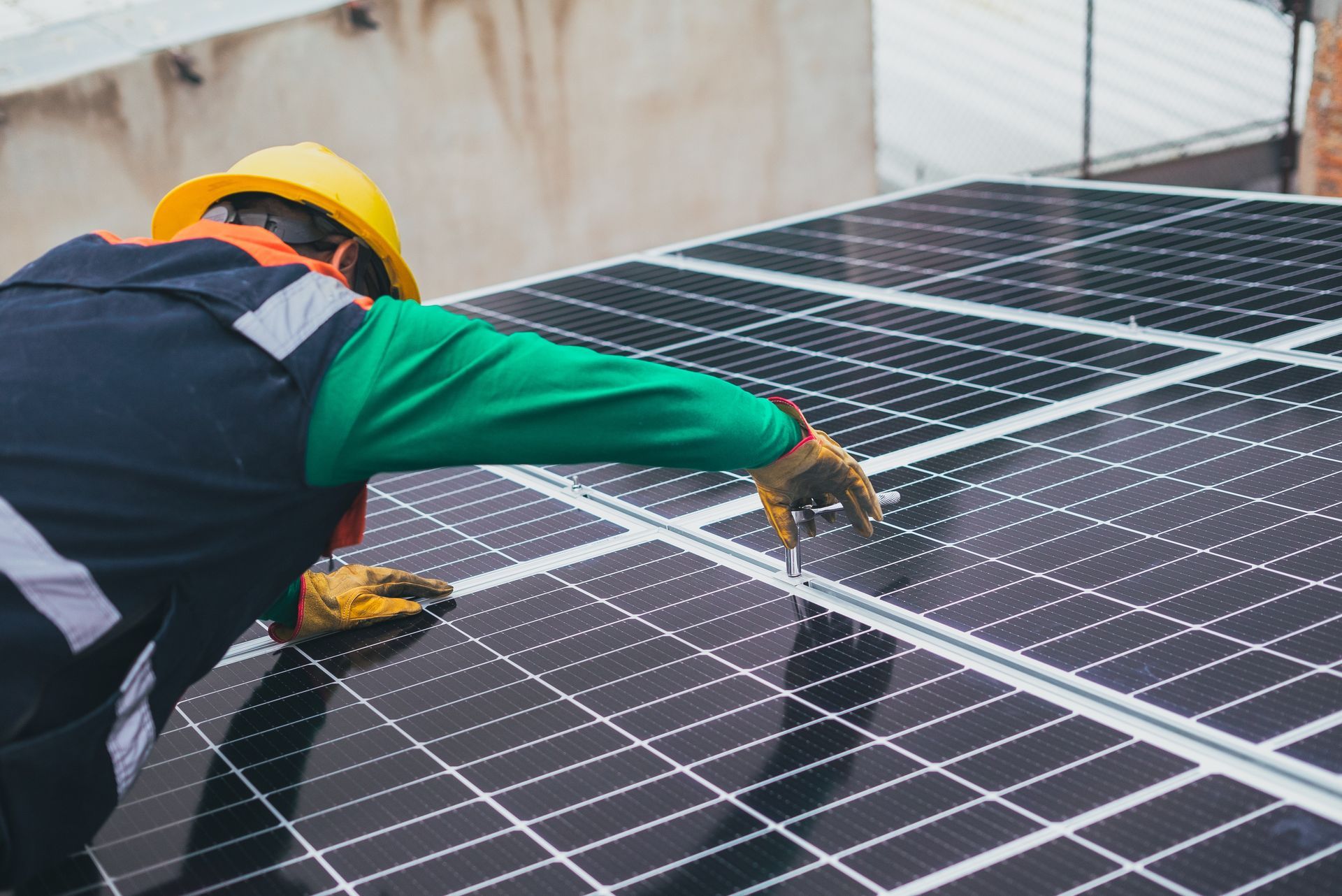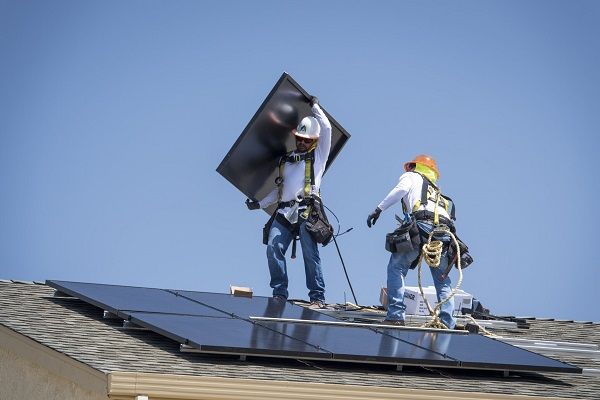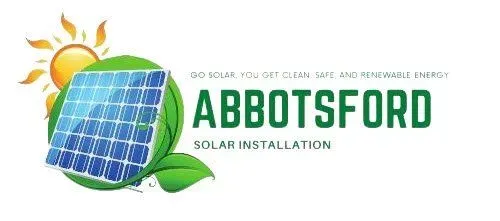Abbotsford Solar Installation
Residential Solar System Maintenance
As we embrace the benefits of residential solar systems, it's important to recognize that their efficiency and longevity go hand in hand with proper maintenance. Beyond the initial setup, regular upkeep is key to ensuring optimal performance and a lasting investment. Maintaining your solar panels isn't just about cleanliness – it's about maximizing energy production and maximizing the most of your investment.
In this guide, we'll explore the vital role of maintenance for
residential solar systems, uncovering how this practice can unlock the full potential of your solar energy journey.

Visual Inspection and Cleaning
Regular visual inspections are a necessary aspect of maintaining the efficiency and longevity of your residential solar system. Below are some detailed cleaning tips to help you keep your system performing at its best:
- Frequent Checks
Conduct regular visual scans of your solar panels to spot any accumulated dirt, debris, or potential shading issues.
- Gentle Cleaning
You can use a soft brush, microfiber cloth, squeegee, and clean water when cleaning solar panels. Gently remove dirt and grime without applying excessive pressure.
- Avoid Harsh Materials
Avoid abrasive cleaning tools or harsh chemicals that could scratch the panels or damage their anti-reflective coatings.
Monitoring Systems and Tools
To ensure your residential solar system is operating at its finest, consider using monitoring systems and tools that offer valuable insights into its performance. This is why they matter:
- Real-Time Tracking
Monitoring systems provide real-time data on your solar system's energy production, allowing you to gauge its efficiency and identify any deviations - Performance Analysis
You can spot performance changes through data analysis, such as reduced energy output due to shading or malfunctioning panels. - Early Issue Detection
Monitoring helps you catch problems early, addressing them promptly and preventing further deterioration.
Optimal Maintenance
With accurate data, you can schedule maintenance activities more effectively, ensuring timely upkeep for peak performance.
Seasonal Considerations
The changing seasons and weather conditions notably impact the efficiency of your residential solar panels. Here's how to optimize energy production year-round:
- Summer
Longer days and higher sunlight intensity lead to increased energy production. But, panels can overheat, causing a slight drop in efficiency. Regular cleaning and ensuring proper ventilation help maintain optimal performance.
- Fall
As the sun's angle changes, adjusting the tilt of your panels can enhance energy capture. Fallen leaves and debris should be cleared to prevent shading.
- Winter
Snow accumulation can reduce energy output. Gently removing snow or allowing it to slide off naturally can restore efficiency. Panels work better in cold temperatures, but energy demand could increase due to shorter daylight hours.
- Spring
Cleaning panels after the pollen season ensures maximum sunlight absorption. Regular maintenance and visual inspections are crucial after harsh winter conditions.
Common Issues and Troubleshooting
While residential solar systems are designed for durability, a few common issues can arise over time. The following are things that you can identify and address:
- Microcracks
Tiny panel cracks will not be immediately visible but can impact performance. Regular visual inspections help catch these issues early.
- Hotspots
Hotspots occur when a part of the panel generates excessive heat, affecting nearby cells. These can be caused by shading, dirt buildup, or manufacturing defects. Monitoring systems can help detect hotspots.
- Loose Connections
Vibration or extreme weather can cause connections to become loose. Regularly check connections and fasteners for tightness.
- Inverter Problems
Inverters convert solar energy into usable electricity. If you notice a drop in energy production, your inverter can malfunction. Check for error messages on the inverter display and consult the manufacturer's guidelines.
- Degradation
Solar panels naturally degrade over time, decreasing energy output. Monitoring systems help track gradual declines in performance.
Professional Maintenance vs. DIY
When maintaining your residential solar system, you have two options: hiring professional services or taking a do-it-yourself (DIY) approach. Both have their advantages and drawbacks, allowing you to choose what suits you best:
Professional Maintenance:
Advantages:
- Expertise: Professionals are trained to identify and address issues effectively, ensuring optimal system performance.
- Safety: They have the right equipment and knowledge to work safely with solar components.
- Time Savings: Hiring professionals saves you time and effort, allowing you to focus on other tasks.
- Comprehensive Service: Professionals often offer comprehensive maintenance packages covering all system care aspects.
Drawbacks:
- Cost: Professional services come with a cost, which can vary based on the provider and the scope of services.
- Scheduling: You need to coordinate appointments and accommodate their availability.
DIY Maintenance:
Advantages:
- Cost Savings: DIY maintenance can be more budget-friendly since you won't pay for professional services.
- Flexibility: You can perform maintenance tasks when it's convenient for you.
- Learning Opportunity: DIY maintenance lets you learn more about your solar system and its components.
Drawbacks:
- Limited Expertise: DIY maintenance requires research and knowledge about solar systems, which could be challenging for some homeowners.
- Safety Concerns: Working with electrical components carries risks. Without proper training, you could put your safety at risk.
- Time and Effort: DIY maintenance can be time-consuming and could achieve a different level of thoroughness than professional services.
Solar Panel Installation Warranty Considerations
Protecting your residential solar system investment goes hand in hand with warranty coverage. Here's what to consider:
Warranty Conditions
Solar panel warranties come with conditions, including regular maintenance requirements. Neglecting maintenance could jeopardize your warranty.
Manufacturer Guidelines
Adhere to manufacturer-recommended maintenance guidelines to keep your warranty intact. Regular inspections, cleaning, and addressing issues are usually included.
Proof of Maintenance
Some manufacturers can ask for proof of maintenance during warranty claims. Maintain records of your efforts, including dates, cleaning, and professional services.
Professional Maintenance
If you choose professional services, ensure they follow manufacturer guidelines. This maintains warranty coverage and system performance.
Safety Guidelines for Homeowners
When maintaining your residential solar system, safety is paramount. Follow these guidelines to ensure a secure maintenance process:
- System Shutdown
Before any maintenance, turn off your solar system to avoid electrical hazards. Follow manufacturer instructions for safe shutdown.
- High-Voltage Areas
Solar systems generate high voltage. Avoid touching wires, connectors, or electrical components to prevent shocks or injuries.
- Daylight Work
Perform maintenance during daylight hours for optimal visibility. This reduces the risk of accidents and ensures safer work conditions.
- Secure Footing
Maintain a stable footing while accessing solar panels. Use proper ladder placement and wear appropriate footwear.
- Weather Conditions
Avoid maintenance during adverse weather conditions, such as rain or snow. Slippery surfaces can lead to accidents.
- Equipment Use
If using tools, ensure they are suitable for the task and in good condition. Use insulated gloves when necessary.
- Protective Gear
Wear appropriate protective gear, such as safety glasses and gloves, to safeguard against debris and potential hazards.
- Assistance
If the task seems complex or requires rooftop access, consider seeking professional assistance for safety and expertise.

Take Control of Your Investment with a Solar Panel Company
Prioritizing solar system maintenance guarantees sustained energy production and safeguards your investment for years to come. Take charge of your solar system's performance, and enjoy the benefits of renewable energy with our
solar services in Abbotsford Solar Installation while contributing to a greener future.
